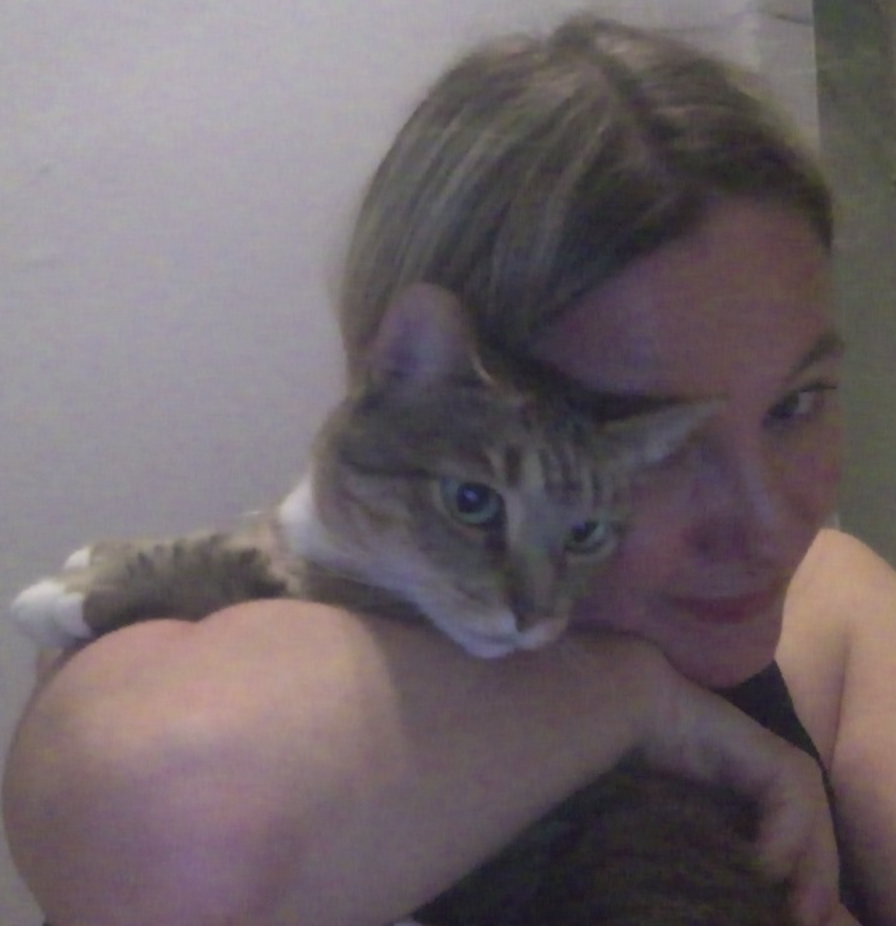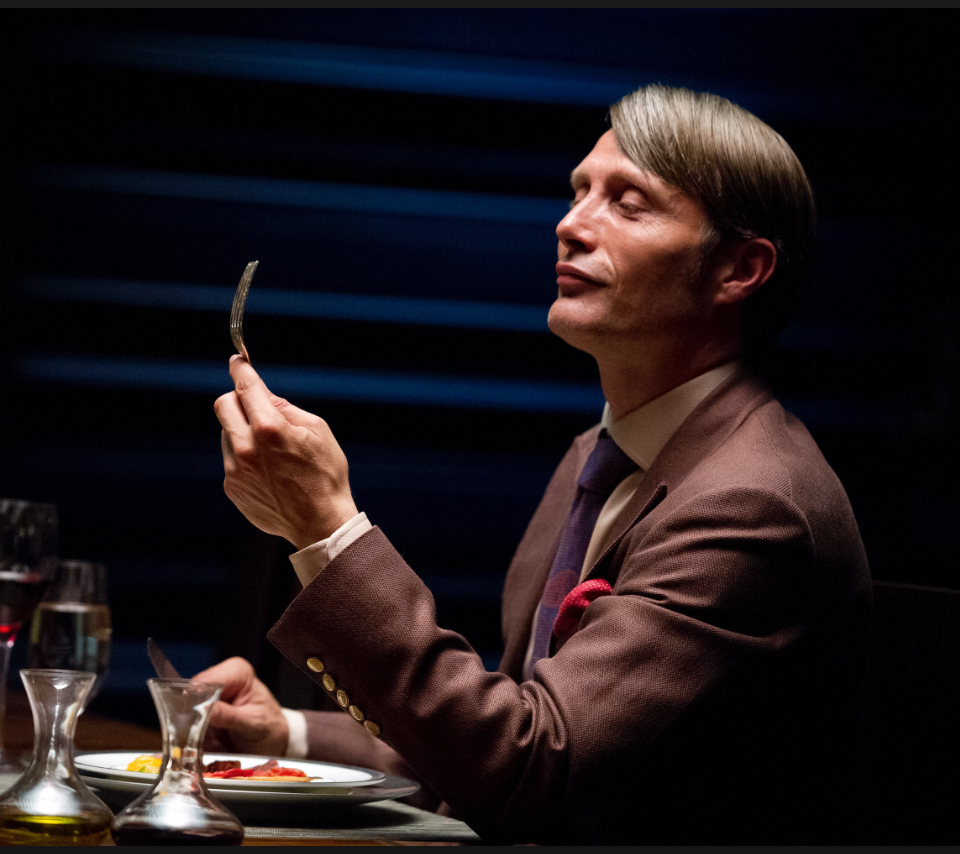Grace of My Heart
 One of the great satisfactions of rescuing a stray kitten, as I did five years ago this week, is that her affection is so hard-won that she opens my heart a little wider each time she creeps into my lap, or the crook of my arm as I am reading, or beneath my palm so that I may scratch her ears just-so, just-so. I know how much it takes for Grace to push past her fears to offer me her belly–lord knows what happened on the semi-mean streets of Brooklyn in the six weeks of her life before she showed up on the stoop of my heart–and I know how much I’ve had to quiet myself to become the gentle being to whom she dares offers herself. With each animal-human relationship comes great lessons and greater pleasures if we allow ourselves to receive them. I’ll say it one more time: I’m so happy to be a cat lady.
One of the great satisfactions of rescuing a stray kitten, as I did five years ago this week, is that her affection is so hard-won that she opens my heart a little wider each time she creeps into my lap, or the crook of my arm as I am reading, or beneath my palm so that I may scratch her ears just-so, just-so. I know how much it takes for Grace to push past her fears to offer me her belly–lord knows what happened on the semi-mean streets of Brooklyn in the six weeks of her life before she showed up on the stoop of my heart–and I know how much I’ve had to quiet myself to become the gentle being to whom she dares offers herself. With each animal-human relationship comes great lessons and greater pleasures if we allow ourselves to receive them. I’ll say it one more time: I’m so happy to be a cat lady.
Why ‘Hannibal’ Is an Acquired Taste
 The following is a review I originally published in Word and Film.
The following is a review I originally published in Word and Film.
The season two finale of “Hannibal” airs May 23, and most of us have no clue how it will end even if we’ve read Thomas Harris’ Red Dragon, upon which the series is loosely based. That’s if we’ve been watching at all: The NBC show’s ratings have dipped perilously low though it’s been renewed it for another season.
Yet, aside from Sherlock Holmes, there may be no crime-novel figure who looms as large in our collective imagination as Hannibal Lecter does, and this show goes a long way toward explaining why. Like all of our most terrifying dreams, “Hannibal” seduces us before grabbing us by the throat. Ironically, that seduction relies mightily upon a moral and narrative ambiguity that also may be alienating audiences.
In the movies adapted from Harris’ books about the serial killer, Hannibal Lecter is larger-than-life – so much so that a little of him goes a long way. In 1986’s “Manhunter,” actor Brian Cox bases his portrayal less on the character’s literary antecedent than on the Scottish serial killer Peter Manuel. The effect is plenty chilling but more brutish than we might expect of an aesthete whose declared foe is bad taste. In “The Silence of the Lambs,” “Red Dragon,” and the unfortunate “Hannibal,” Anthony Hopkins’ iconic take is more refined but also so hammy that it’s only palatable in small doses (cannibalism metaphors apparently being irresistible in this context). It’s hard to, ahem, swallow that the doctor wouldn’t eat someone else alive for such showboating, quid pro quo. And let’s not discuss Gaspard Ulliel’s turn as the young Lecter in 2007’s unspeakably bad “Hannibal Rising”; Thomas Harris was reportedly bullied into writing this film and book by those who held the cinematic rights to the character.
Then there’s Mads Mikkelsen’s Hannibal in the eponymously titled NBC show, which swoops in and out of a fidelity to Harris’ books with a discombobulating, off-kilter elegance that is this series’ trademark. Continue Reading →
‘Palo Alto’: How the Coppola Dynasty Thrives
 The following is a review I originally published in Word and Film.
The following is a review I originally published in Word and Film.
Much has been made of James Franco’s unfortunate Instagram flirtation with an underage Scottish girl last month, especially as it dovetails with the release of “Palo Alto,” in which he plays a high school soccer coach who has a sexual relationship with a student. Was his transgression a publicity stunt for the film, one of his bizarre meta-performance art pieces, or the flailing of another predatory adult male who’s failed to grasp that privacy is, like, so last millennium?
No matter what the actor/PhD candidate/writer/director/artist/Seth Rogen aficionado’s intentions, it’s hard not to flash on Instagram-Gate when first settling in to watch Gia Coppola’s film about the dissolute adolescents in a California suburb. In one of its first images, we’re introduced to Franco as “Mr. B,” a figure looming against a soccer field backdrop. Here, his sparkly eyes are a little dimmer; his once-lithe build a little bulkier; his overall visage a lot more dissipated. In short, he resembles the kind of fellow keen to recapture his glory days at whatever cost necessary.
It’s also hard not to flash on Franco as Daniel Desario from “Freaks and Geeks.” Not since Matthew Broderick, who played that iconic delinquent Ferris Bueller, appeared as a hapless civics teacher in “Election” has an actor’s transition from student to teacher roles so succinctly signaled the passage of a generation.
In general, “Palo Alto” is all about the passing of torches. First-time director Coppola bears quite the pedigree: Her great-grandfather is film composer Carmine Coppola; her grandfather is director Francis Ford Coppola; her aunt is director Sofia Coppola; her cousins include actors Nicolas Cage and Jason Schwartzman; and she most resembles her great-aunt, actress Talia Shire. Gia’s film features Julia Roberts’ niece and Eric Roberts’s daughter Emma Roberts as April, the soccer player involved with Mr B; the son of Polly Draper from “Thirtysomething,” Nat Wolff, is Fred, a whirling dervish of destructive testosterone; and Val Kilmer’s son Jack Kilmer is Teddy, an artist calamitously influenced by his best friend Fred. (Val also appears in this film as April’s ponytail-sporting father, who so aggressively proofs her papers that she’s accused of plagiarism.) To Coppola’s credit (for the sake of clarification, “Coppola” will refer to Gia for the duration of this review), for her first directorial effort she tackles the queasiness of legacies head-on, and without the pretty, “poor-little-rich-girl” torpor that is her aunt’s trademark. Continue Reading →
